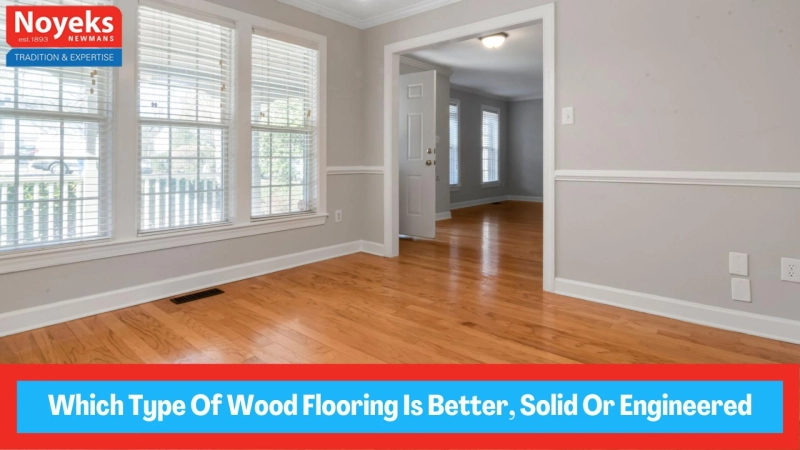We frequently ask what the differences are between the various varieties of wood floors when it comes to our flooring. All of us have grown up around wood flooring, but contrary to popular belief, not all of it is made of real hardwood. Most people can't tell the difference between real hardwood and other flooring types, including laminate floors, because the latter is created to imitate the real thing. There are particular distinctions, though, that we anticipated being mentioned.
Which is best? It depends on what you intend to do with your flooring and on you. The two kinds of wood flooring each have their advantages and disadvantages. We'll let you make the final decision. We are always available to assist you in furthering your understanding of the distinctions, though, if you read the following info.
When choosing the floor, consider your budget, the amount of use it will receive, and how long you want the flooring to last. Hardwood flooring has been around for a long time and is sometimes a fantastic choice. But in some circumstances, engineered flooring makes more sense. To decide which is ideal for you, let's examine the distinctions between the two.
The Appearance
Long planks of solid wood flooring are often composed of hardwood species. Due to the machined edges with tongue and groove, the boards interlock when mounted—always secured with skilled nailing to the subfloor. This flooring may be sanded and refinished multiple times because it is solid wood. Hardwood flooring can last a lifetime or more if cared for properly.
Engineered wood flooring resembles solid wood flooring rather closely. Plywood is the base of engineered wood, which is then covered with a thin layer of natural hardwood and is highly stable. A high-quality engineered wood floor is renowned for being less expensive, easier to install, and lasting up to 50 years.
Heat And Water Resistance
Installation in most regions is not advised for any material. Both kinds of hardwood can withstand heat, and however, humidity is different. Hardwood can collapse and swell as moisture from a concrete slab passes through it and up through the surface. Because of this, installing solid hardwood against concrete slabs is not advisable. Because of its plywood construction, engineered hardwood is sturdy and less prone to warping, making it a good choice for projects involving the installation of flooring over concrete. The performance of engineered hardwood in humid settings is particularly crucial to mention.
Maintaining and Cleaning
Solid and engineered wood floors are easy to keep clean; they only need to be vacuumed and swept occasionally and damp-mopped with an approved wood cleaner. However, you should avoid cleaning any wood with steam.
Maintenance and Reliability
Solid hardwood is preferable in terms of upkeep and durability. But you should also think about how long your flooring will survive. If properly maintained, engineered hardwoods can stay for many years without problems. Throughout its existence, solid hardwood can be sanded and refinished numerous times, while engineered hardwood can only be done so sparingly, if ever. How many times engineered wood can be refinished depends on the manufacturer. Both are highly durable and require only light washing for maintenance.
Installation
The tongue-and-groove method is used to install solid hardwood flooring, with each board being blind-nailed to the subfloor through tongues at the margins of the panels. While some engineered wood flooring can be laid using the same nail-down techniques as solid hardwood, other varieties include "click-lock" edges that enable "floating floor" installation. Additionally, engineered wood flooring can be attached to a concrete subfloor. Engineered wood flooring is typically easier to install for do-it-yourselfers.
The Verdict
Engineered wood floors were initially thought of as a cheap copy of actual hardwood, but improvements in product quality have disproved this notion. While solid hardwood continues to be a top choice among professionals for adding value and longevity and may have a slight prestige advantage for some, engineered wood flooring has an advantage over others due to its lower cost and more straightforward installation. Additionally, engineered wood utilizes less hardwood, which appeals to customers who care about the environment.



